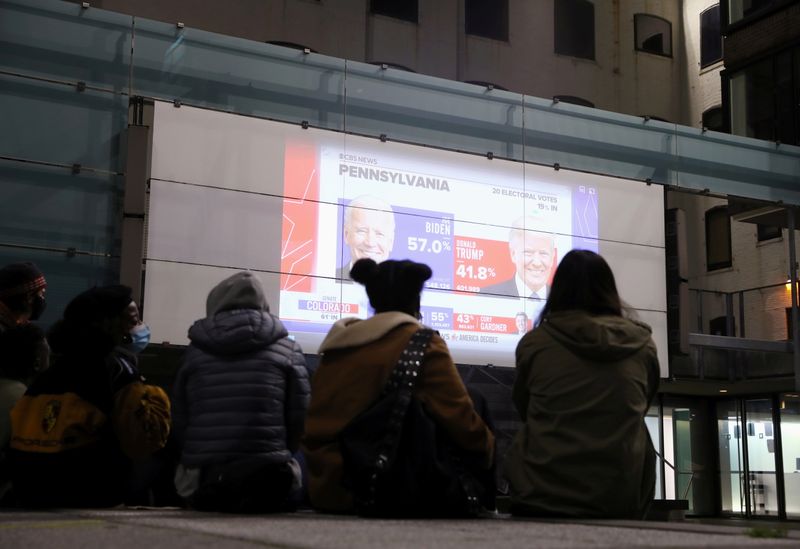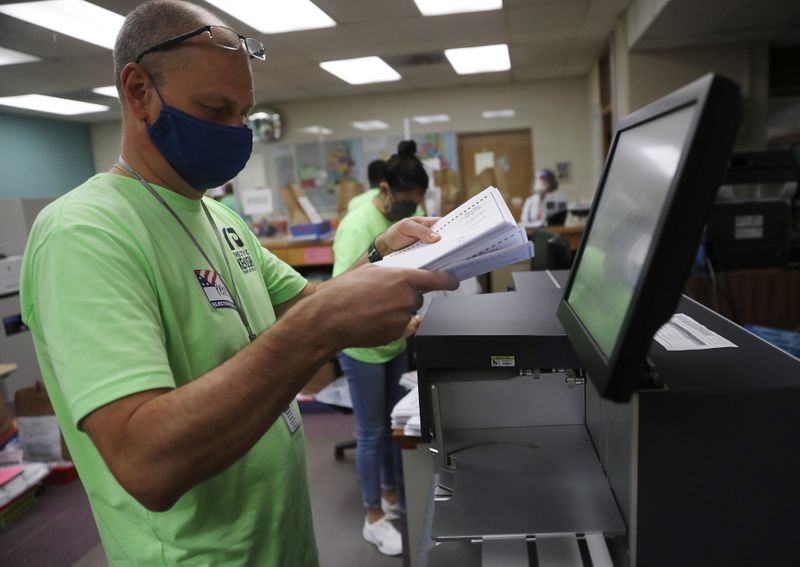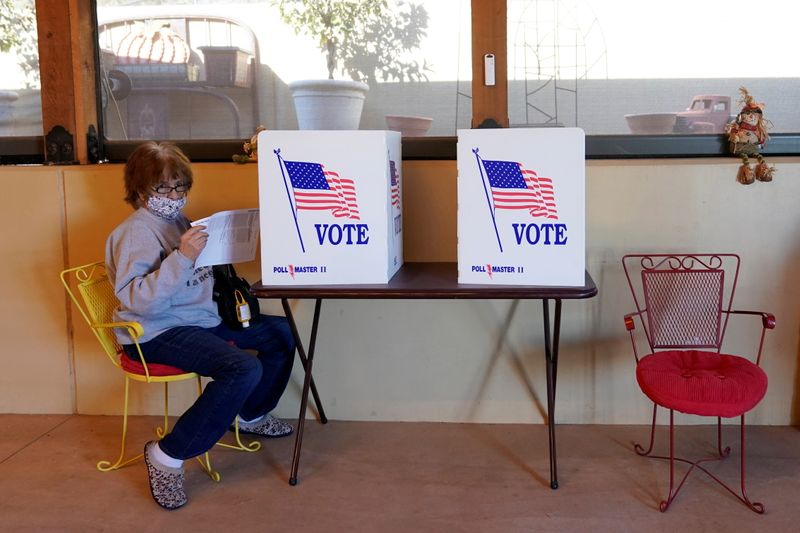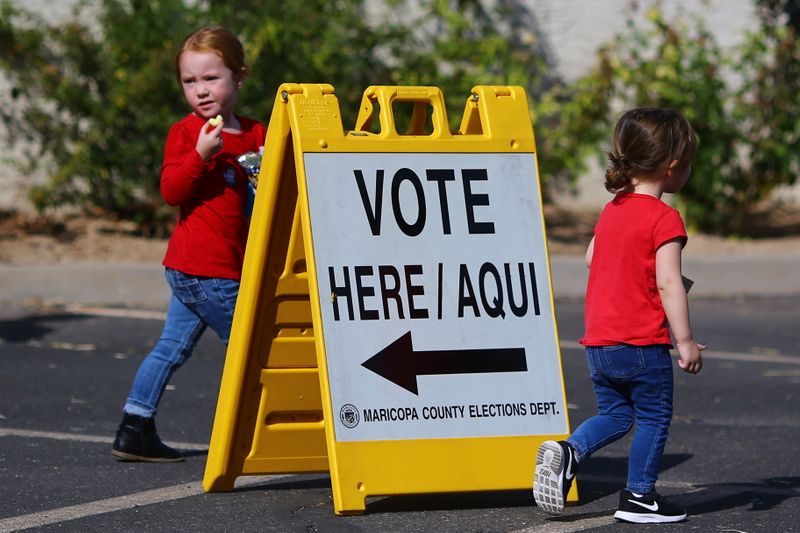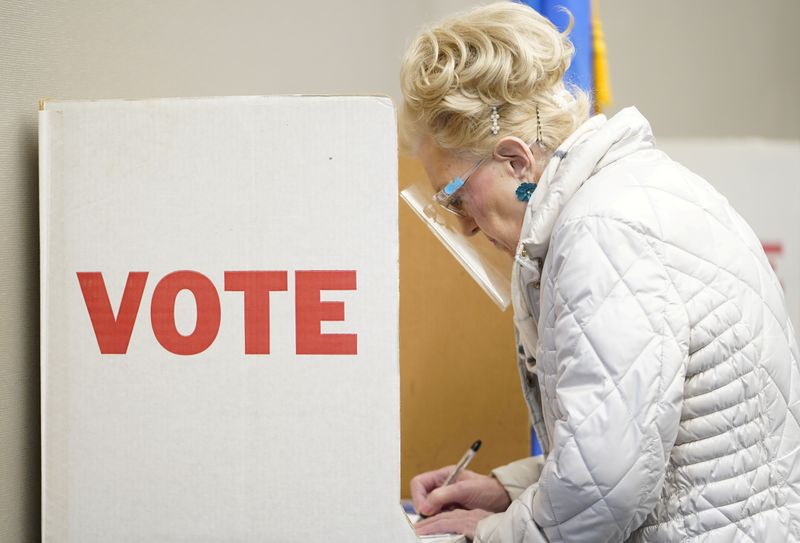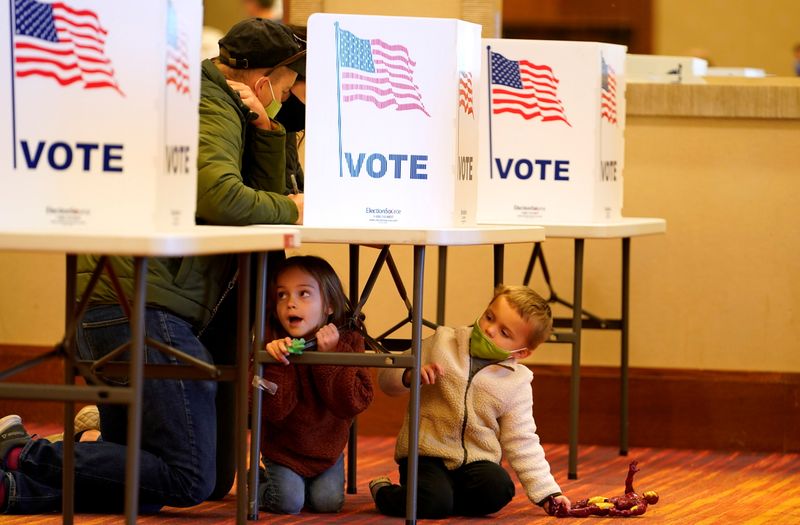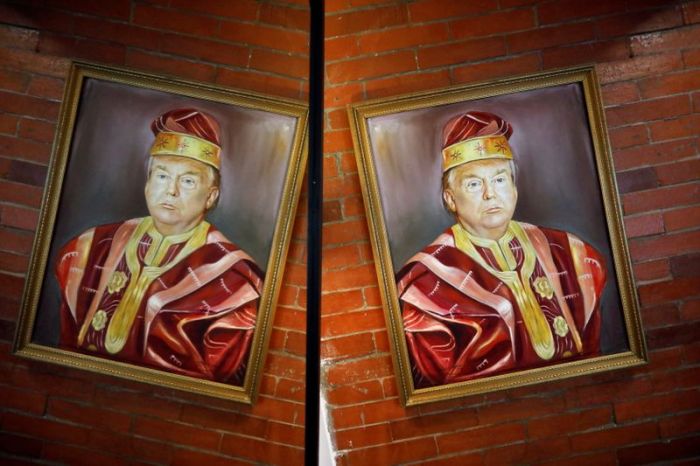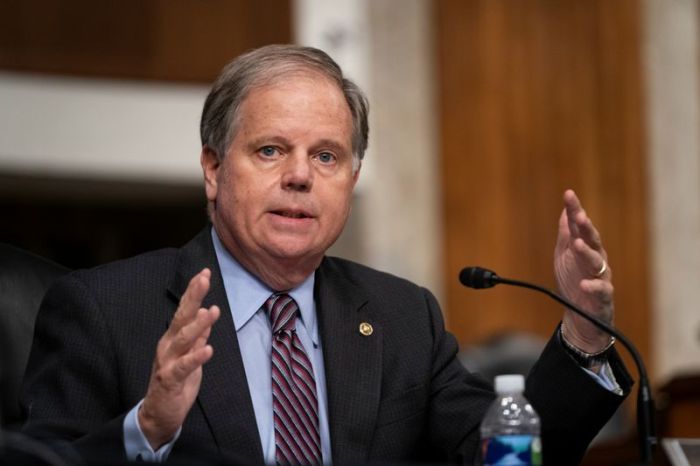(Reuters) – As the U.S. presidential race remained undecided, President Donald Trump showed some surprising gains with Latino and other nonwhite voters, but they may have been offset by losses among those who supported him four years ago, according to exit polls conducted by Edison Research.
Here are some highlights from the polls, based on in-person interviews with voters on Tuesday, in-person interviews at early voting centers before Election Day and telephone interviews with people who voted by mail.
NEW STRENGTH WITH LATINOS
Trump won both Florida and Texas over Democratic opponent Joe Biden in part because of newfound support from Latino voters.
In Florida, according to exit polls, Trump and Biden split the Latino vote. In 2016, Trump only won four out of 10 Latino voters in his race against Democratic nominee Hillary Clinton. Overall, he was winning three of 10 nonwhite voters versus winning just two of 10 four years ago.
Trump maintained his advantage among white voters in Florida. According to Edison Research exit polls, six in 10 white voters said they cast ballots for Trump, unchanged from 2016.
The Trump campaign made winning over Cuban-American voters in populous South Florida a top priority by emphasizing the administration’s hardline policy toward Cuba and Venezuela, and branding Biden and Democrats “socialists” in the manner of those countries’ regimes.
In Texas, four in 10 Hispanics voted for Trump, up from three in 10 in 2016, according to exit polls in that state.
Edison’s national exit poll showed that while Biden led Trump among nonwhite voters, Trump had received a slightly higher proportion of the nonwhite vote than he did in 2016.
The poll showed that about 11% of African Americans, 31% of Hispanics and 30% of Asian Americans voted for Trump, up 3 percentage points from 2016 among all three groups.
OLD TRUMP BASE ERODING
Trump may need his improved performance with nonwhite voters, however, to try and compensate for losses within his traditional political base.
The Republican president appears to have lost some support among white men and some older voters in Georgia, Pennsylvania and Wisconsin, according to Edison polls.
While Trump is still winning the majority of those voters, some of them switched to supporting Biden, the exit polls showed.
Trump won all three states in 2016, but all three remained undecided early Wednesday morning.
Edison’s polls showed Trump winning seven in 10 white men in Georgia, down from an eight-in-10 advantage over Clinton in 2016. While Trump is winning six in 10 voters who are at least 65 years old in Georgia, that was down from seven in 10 four years ago.
According to the exit poll, Trump appears to have lost support in Pennsylvania, a state that could determine the election, among white men, college-educated voters and people younger than 44.
The poll found that 61% of white men backed Trump’s bid for re-election, down 3 points from 2016.
Forty percent of college graduates voted for Trump, down 5 points from four years ago, and 33% of voters between 18 and 44 backed Trump in the state, down 9 points from 2016.
Trump did win 56% of Pennsylvania voters who are at least 45 years old, which is 3 points higher than 2016.
In Wisconsin, about six in 10 white men without college degrees voted for Trump, down from seven in 10 in 2016. And four in 10 independents this time backed Trump, down from half of that state’s voters, according to Edison.
COVID CONCERNS
The national Edison Research poll results also revealed deep concern about the coronavirus pandemic that has infected more than 9.4 million people in the United States this year and killed more than 230,000.
While only two of 10 voters nationally said COVID-19 was the issue that mattered most in their choice for president, half of U.S. voters believe it is more important to contain the coronavirus even if it hurts the economy.
Trump made the full opening of the U.S. economy a centerpiece of his re-election campaign, even as infections continue to rise. Biden has claimed Trump is undeserving of a second term because of his handling of the pandemic.
In the national exit poll, four out of 10 voters said they thought the effort to contain the virus was going “very badly.” In Florida and North Carolina, five of 10 voters said the national response to the pandemic was going “somewhat or very badly.”
The poll found that nine out of 10 voters had already decided whom to vote for before October, and nine out of 10 voters said they were confident that their state would accurately count votes.
Edison compiles exit polls and live election results for the National Election Pool media consortium.
(Reporting by Chris Kahn and James Oliphant; Additional reporting by Dan Burns and Tiffany Wu; Editing by Colleen Jenkins, Lincoln Feast, Peter Cooney, Sonya Hepinstall and Nick Tattersall)



